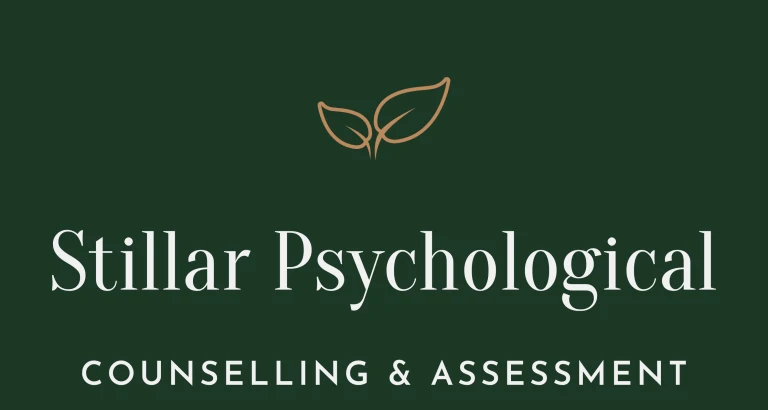When you find yourself overthinking your relationship, it can feel like you’re trapped in a continuous loop of “what-ifs” and worst-case scenarios. This form of relationship anxiety is not only emotionally draining but can also negatively impact the dynamics of your partnership. Stillar Psychological offers professional insights into managing these overpowering thoughts and fostering a healthier, more secure relationship. By understanding and addressing the root causes of your relationship anxieties, you can begin to break free from the cycle of overthinking. Learning effective communication and trust-building strategies will help you enjoy a more fulfilling partnership.
Understand the Roots of Your Anxiety
Understanding the roots of your anxiety is an essential first step in managing overthinking in your relationship. This form of anxiety typically stems from a variety of sources, including past relationships, early childhood experiences, and personal insecurities. Perhaps previous experiences of betrayal or inconsistency have left you wary, or maybe your anxiety is linked to deep-seated fears of inadequacy or rejection. By identifying these underlying causes, you can begin to address them directly.
Consider reflecting on patterns in your past relationships: Are there recurring themes or issues that may be contributing to your current anxieties? Acknowledging these patterns can be illuminating and empowering. It enables you to recognize that your current worries may not be entirely rooted in the present situation but are being influenced by unresolved issues from the past. With this awareness, you can start to challenge and reframe your anxious thoughts, making them less daunting and more manageable.
Communicate Openly with Your Partner
Open communication is crucial for managing overthinking and alleviating relationship anxiety. It involves more than just talking about your day; it requires sharing your deeper thoughts, feelings, and fears with your partner. This openness fosters intimacy and understanding, which are fundamental for a healthy relationship. Start by setting aside a specific time to talk when both of you are not distracted or stressed. During these discussions, try to express your feelings clearly and honestly without blaming your partner.
Instead of saying, “You make me feel anxious,” explain what specific behaviors contribute to your feelings and why. This approach encourages constructive dialogue and prevents misunderstandings that can escalate anxiety. Additionally, invite your partner to share their thoughts and feelings. This mutual exchange not only helps you feel less alone in your anxieties but also builds a stronger foundation of trust and cooperation in the relationship.
Set Realistic Expectations
Overthinking in relationships can often be magnified by holding onto unrealistic expectations about how your partner or the relationship should be. It’s important to assess these expectations critically and determine if they are truly realistic or if they stem from idealized notions influenced by media, culture, or personal fantasies. Consider what you expect from your partner in daily interactions and in emotional support. Are these expectations fair, and are they achievable?
For instance, expecting your partner to always know what you’re feeling or to spend all their free time with you might lead to disappointment and frustration. Instead, strive for balance and recognize that your partner, like anyone, has limitations and personal needs. Discuss these expectations with your partner to ensure both of you are on the same page. By aligning your expectations with reality, you reduce the risk of misunderstandings and the anxiety that comes from unfulfilled desires, creating a more stable and satisfying relationship.
Focus on the Present
Focusing on the present is a powerful way to counteract the tendency to overthink your relationship. When you spend too much time pondering on past conflicts or worrying about future possibilities, it takes away from experiencing the joys and challenges of the current moment. Practicing mindfulness can be particularly effective in helping you stay grounded. Mindfulness involves observing the present moment without judgment and is a skill that can be developed through regular practice, such as meditation or breathing exercises.
Start by dedicating a few minutes each day to focusing solely on your breathing and the sensations in your body. This practice helps to train your mind to focus on the present and reduce the power of intrusive thoughts about past or future events. By becoming more present, you can enjoy your relationship as it is now, appreciate your partner’s positive qualities, and respond more thoughtfully to relationship challenges.
Limit Social Media Consumption
Social media can significantly influence your perception of what relationships should look like, often aggravating overthinking and anxiety. Platforms like Instagram and Facebook showcase highlight reels of other people’s lives, including their romantic relationships, which are frequently portrayed in an idealized way. This can lead to unhealthy comparisons, making you question the quality of your own relationship or whether your partner measures up to those seen online.
To combat this, consider reducing the time you spend on social media. Be mindful of how these platforms make you feel and actively choose to engage with content that uplifts rather than undermines your confidence in your relationship. You can also use social media intentionally to follow accounts that promote realistic and positive portrayals of relationships, focusing on communication and mutual growth, which can provide a more balanced perspective and reduce the urge to overthink.
Develop Trust
Developing trust with your partner is fundamental to curbing overthinking and building a secure relationship. Trust grows from consistently experiencing reliability, integrity, and support from your partner. It involves believing that they will act in the best interest of the relationship, even in difficult times. To foster trust, focus on being open about your thoughts and feelings, and encourage your partner to do the same.
This openness creates a transparent environment where both partners feel safe to share without fear of judgment or retribution. Additionally, it’s important to keep your commitments and show your partner that they can rely on you. Small acts of kindness and consideration can go a long way in strengthening trust. Remember, trust is not built overnight but through ongoing actions and commitments that reinforce the security of the relationship.
Engage in Individual Activities
Maintaining your identity outside of your relationship is crucial for mental health and relationship balance. Engaging in hobbies and interests independently allows you to bring new experiences and energy back into the relationship, which can prevent stagnation and overreliance on your partner for personal fulfillment. This practice also helps in building self-esteem and reducing insecurities that often fuel overthinking.
Make it a point to spend time on activities that you love, whether it’s sports, reading, or creative endeavors, and encourage your partner to do the same. By supporting each other’s individual growth, you enhance your personal well-being and contribute to a healthier, more dynamic relationship where both partners feel valued and fulfilled.
Seek Professional Help
Sometimes, the strategies to manage overthinking and anxiety on your own are not enough, and it’s completely okay to seek professional help. Stillar Psychological offers a supportive environment where you can explore your thoughts and feelings with experienced therapists trained in various approaches like Cognitive Behavioral Therapy (CBT) and Dialectical Behavior Therapy (DBT). These therapies can be particularly effective in helping you understand and manage patterns of overthinking by teaching you how to challenge negative thoughts and develop healthier thinking habits.
Engaging with a therapist can provide you with personalized strategies to cope with relationship anxiety, allowing you to foster a more secure and satisfying partnership. Our team is here to guide you through each step, ensuring that you feel supported and empowered to make the changes necessary for a healthier relational dynamic. Together, we can uncover the root causes of your anxieties and build a toolkit of strategies tailored to your unique situation.
Practice Self-Compassion
Cultivating self-compassion is a critical step in dealing with overthinking and relationship anxiety. Often, overthinkers are also harsh critics of themselves, which can exacerbate feelings of anxiety and insecurity. Practicing self-compassion involves treating yourself with the same kindness, concern, and support you would offer a good friend. Acknowledge that it’s normal to experience worries and that you are not alone in these feelings. Encourage yourself with positive affirmations and recognize your efforts and accomplishments, no matter how small.
By being kind to yourself and reducing self-criticism, you lower stress levels and create a more positive mental space, allowing you to engage in your relationship with more confidence and less fear. This shift towards self-compassion can dramatically improve how you relate not only to yourself but also to others, paving the way for healthier and more resilient interpersonal connections.
Create a Worry Period
Designating a specific time to focus on your worries, known as a worry period, can significantly help in managing overthinking. Choose a set time each day, maybe 15 to 30 minutes, to allow yourself to think about the aspects of your relationship that cause you anxiety. During this time, write down your concerns and challenge their validity. Consider the evidence for and against each worry and think about practical ways you could address them.
Outside of this designated worry period, whenever an anxious thought arises, remind yourself that you will address it during your worry time. This technique helps to contain anxieties to a manageable part of the day, reducing their impact and presence in your overall life, allowing you to enjoy more of your day-to-day interactions with your partner without constant interference from overthinking. Managing overthinking in your relationship requires a mix of self-reflection, open communication, and practical strategies aimed at reducing anxiety.
Stillar Psychological is committed to supporting you through this journey with our diverse range of mental health services. By working with our experienced therapists, you can learn to navigate relationship challenges more effectively and foster lasting emotional resilience. Find out how we can help you achieve a healthier mindset and a more fulfilling relationship.



















